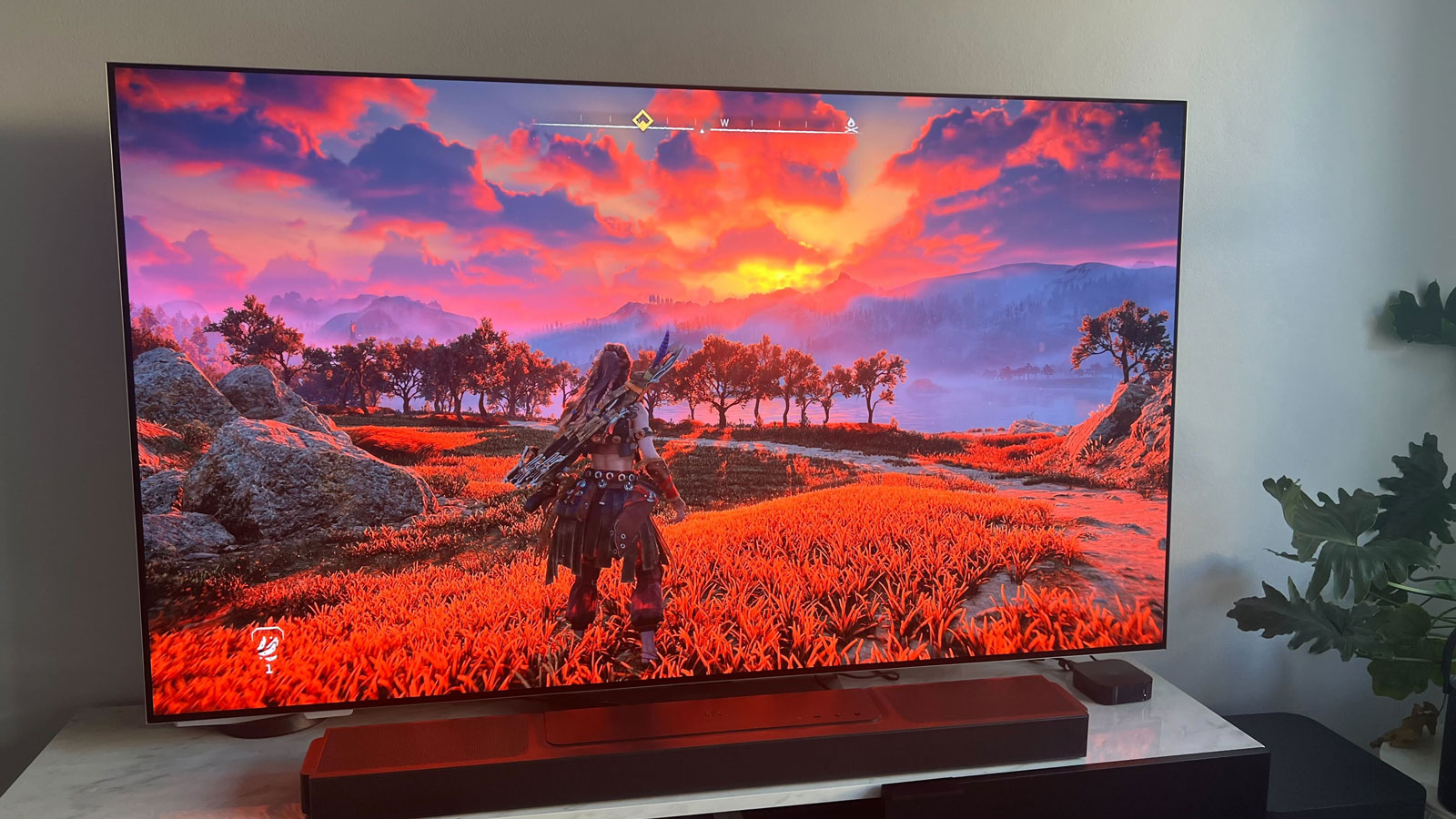
I’ve been involved in the tech industry long enough to have witnessed the very first OLED TVs being released some 10 years ago. And yet, while I’ve written about and attended launch events for the best OLED TVs in the decade since, I’ve never had the luxury of having one at home.
That was until recently, when I took delivery of the LG G3, the latest flagship OLED TV to come from the South Korean brand. It was LG that kicked off the current era of OLED TVs 10 years ago, and the company has gone from strength to strength refining, evolving and revolutionizing the OLED TV sector since.
This latest model makes several improvements over its G2 predecessor (which is still an incredible OLED screen in its own right), including the addition of an all-new α9 Gen6 AI processor. This processor really is the brains of the whole operation, helping to further enhance HDR images by using AI technology to identify various aspects of what’s on screen – such as faces – and then applying tone mapping to enhance sharpness.
The G3 also benefits from Brightness Booster Max, which claims to dramatically improve brightness over regular OLED TVs by some 70% – and seems to really achieve it, based on our experience. This has been made possible by Micro Lens Array (MLA) technology, which sees billions of microscopic lenses being applied over the main screen panel to help better focus the light being emitted from the OLED pixels.
In essence, rather than the light from OLEDs themselves being turned up, MLA technology helps to contain it better and direct it where it needs to go. Not only does this help to make it appear brighter and with more succinct contrast, but it also means the image on screen can go brighter without the worry of burn-in, since no more energy is being used – it's just more efficient.
Where I wanted to test out the benefits of all this screen technology the most was with gaming. And in summary, my games have never looked better and I’m now not sure I could ever live without an OLED TV – especially the G3.
Smooth sailing
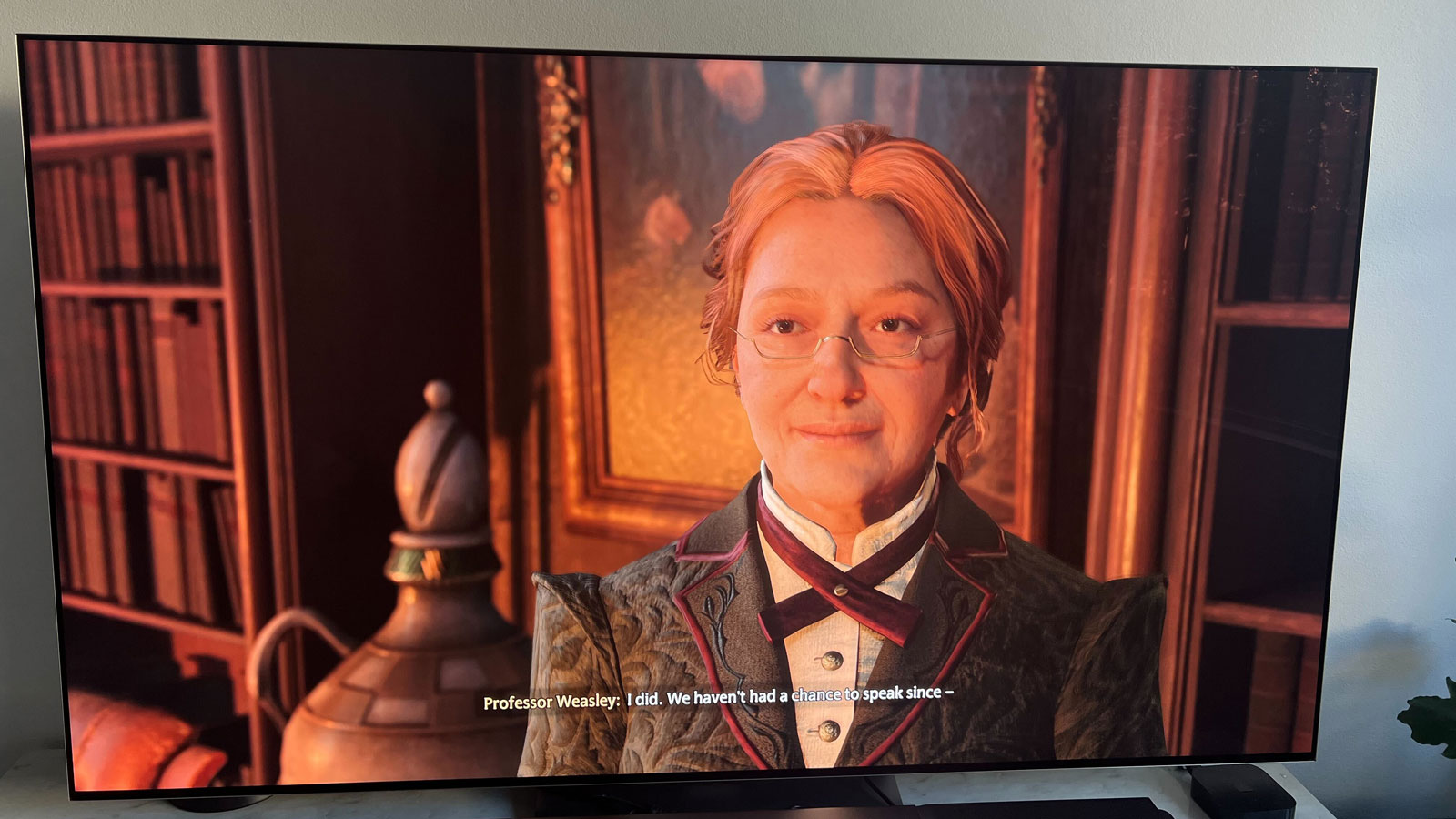
The LG G3 has taken the place of my own mid-range 4K LCD screen, which I had hooked up to a PlayStation 5. While PS5 games look good on my current TV, they don’t reach their full potential. This is because the TV can only handle a maximum of 4K 60Hz in this setup, and not the 4K 120Hz that the console is capable of when used with the best 120Hz TVs.
As soon as I hooked up my PS5 to the LG G3, which does support 4K 120Hz – across all four of its HDMI inputs no less – I loaded up Hogwarts Legacy and noticed an immediate difference in the picture quality. It was night and day. Textures of my character’s face and robes were noticeably smoother and the way the robes moved when running around the Hogwarts castle were more realistic. You may think these differences are relatively minor, but they made my gaming experience that much more immersive and, ultimately, more enjoyable.
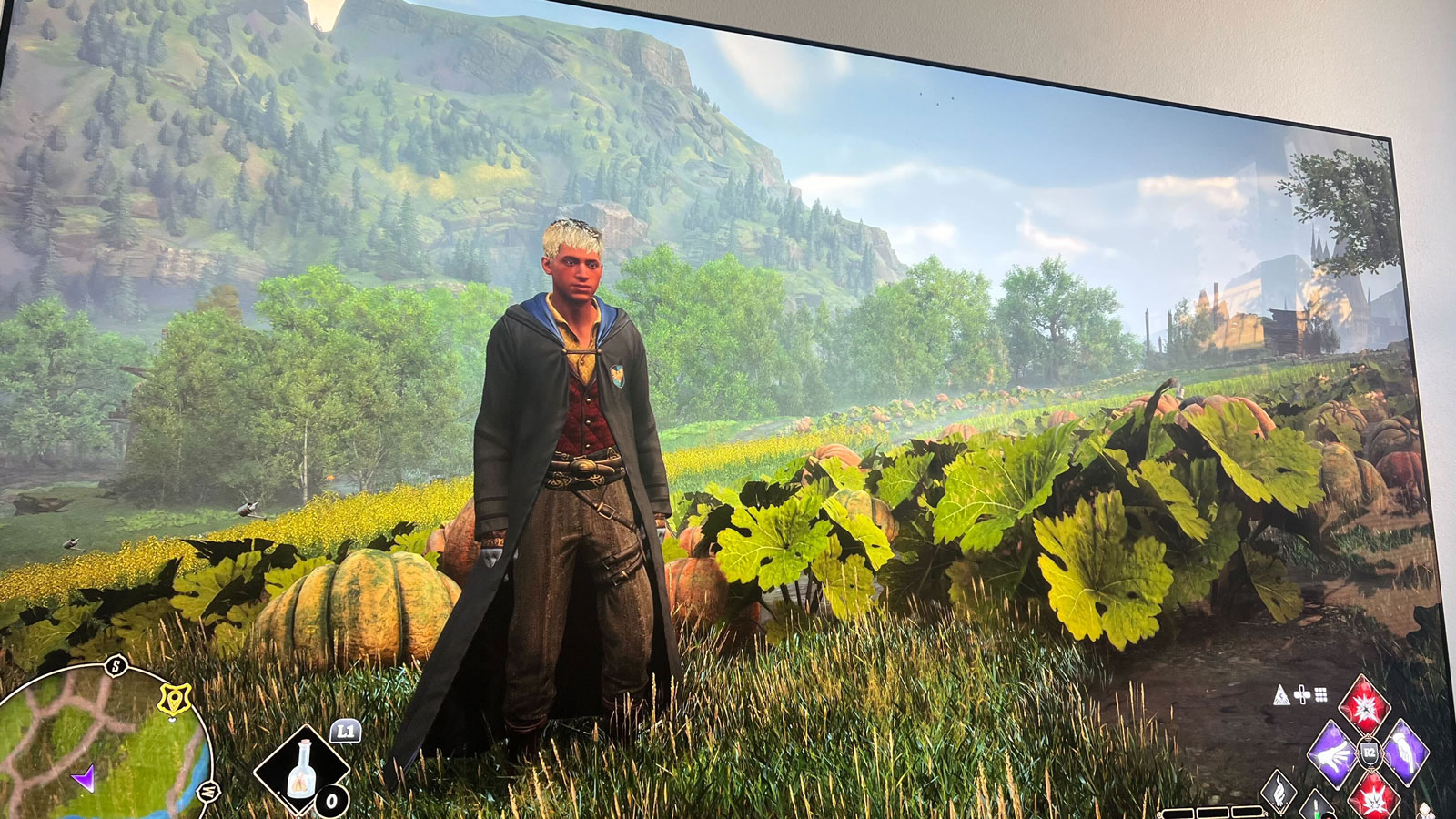
Despite its engaging play, I think it’s fair to say Hogwarts Legacy isn’t the most colorful or vivid game – the landscape views of the Hogwarts castle and beyond look incredible, but on the whole it’s a very black, brown and blue affair. So to put the LG G3’s color reproduction credentials to the test, I loaded up Horizon Forbidden West. Within the first few moments of play, my eyes were wider than a slitherfang's jaw.
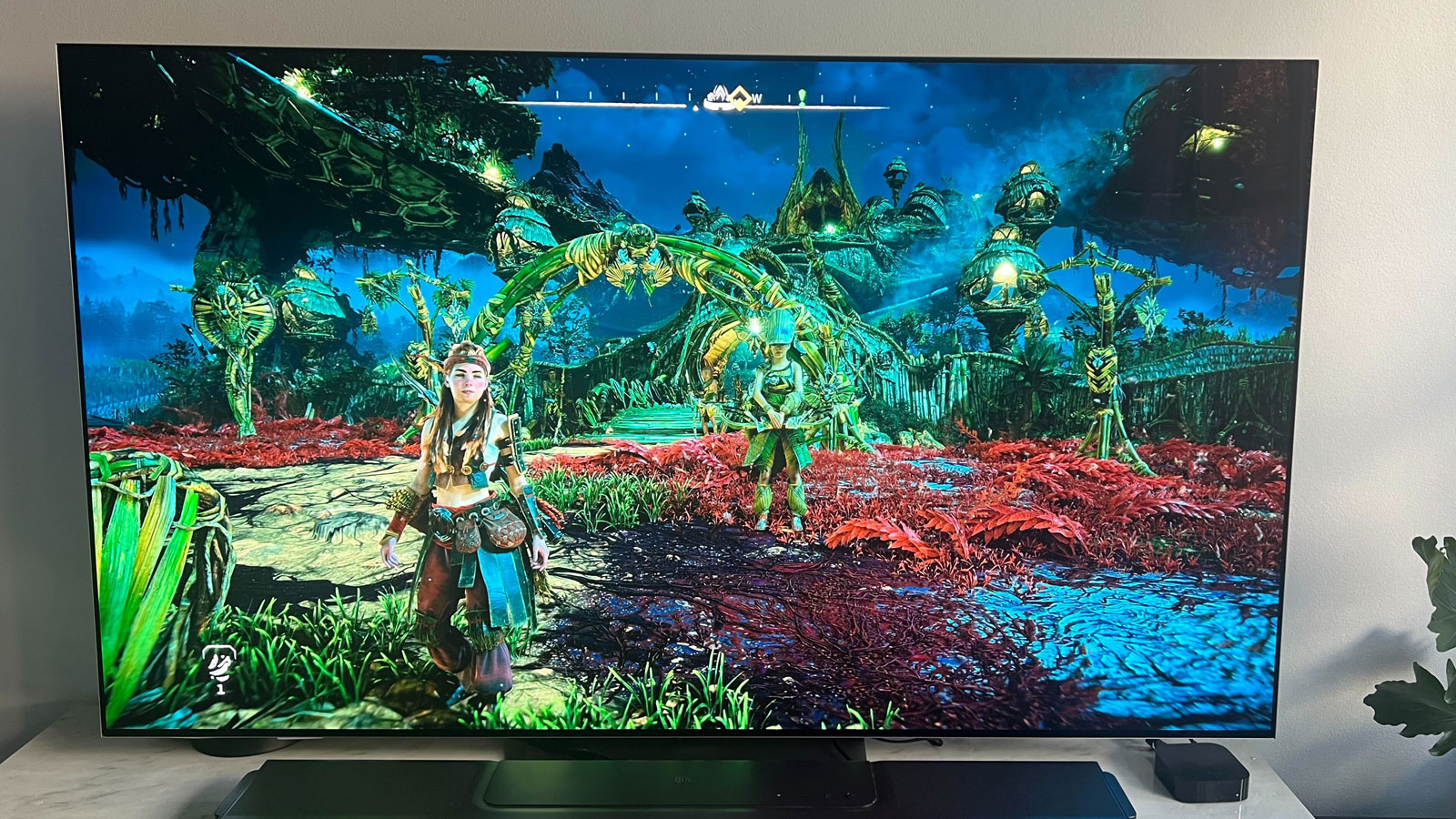
Seeing the colors of Horizon’s vast open world – luscious green jungles, expanses of ocean or long sandy beaches – was truly a sight to behold. The LG G3 handles all with authority, and gameplay benefits from the TV’s inherent ability to serve up incredible contrast. This is the pièce de résistance of OLED, as each individual OLED is either on or off. If it’s off, it’s totally black. This then allows colors in neighboring areas to appear more vivid and deliver greater impact.
A good example of this is in scenes where the main character Aloy is talking to Gaia. Gaia is lit up in bright white and gold while Aloy stands talking to her in comparative darkness. Gaia’s lightfield is isolated to her position, with no discernible bleeding into Aloy’s portion of the screen.
The overall result, for me, is far more immersive gameplay. I’m drawn to the screen far more, and I want to make stops just to admire the entire field of view, as opposed to just focusing on reaching a specified destination in the game.
Optimization station
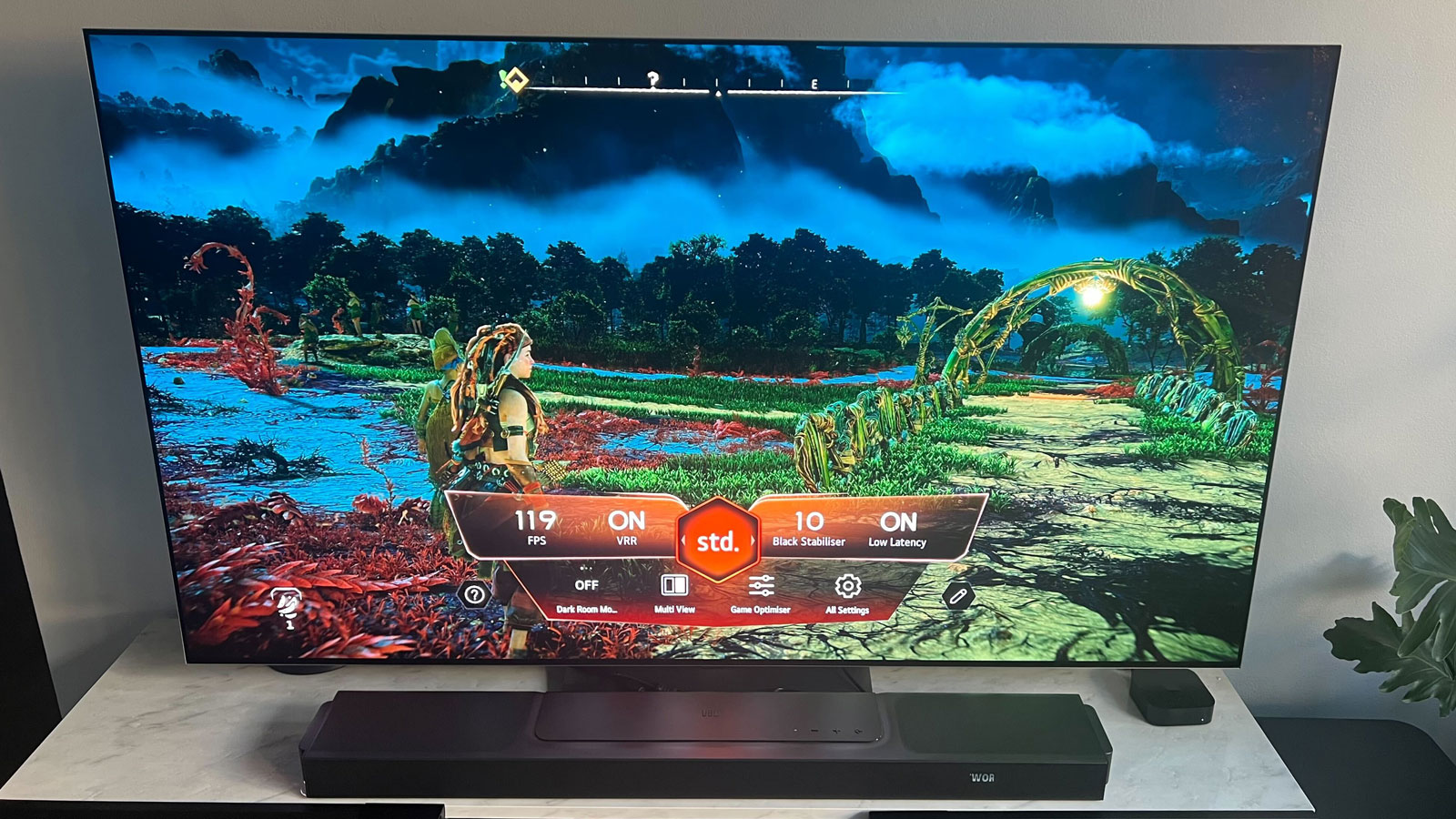
The LG G3 – like all OLED TVs in LG’s range, including the LG C3 – features the company’s Game Optimizer feature. This brings together all the major acronyms in the gaming world, including automatic low latency mode (ALLM), variable refresh rate (VRR) and the aforementioned high frame rate 4K 120Hz support.
Together, these technologies lower input lag from you pressing a button on your game controller and its effect during gameplay, and they enable buttery smooth motion when traversing maps, engaging in high-octane fights or any other fast-moving sequences.
To the untrained eye, turning Game Optimizer may not make a huge world of difference. And in essence, it doesn’t, we’re talking milliseconds here. However I did notice a genuine difference between the performance of the G3 compared to my older 4K TV, which does also support ALLM.
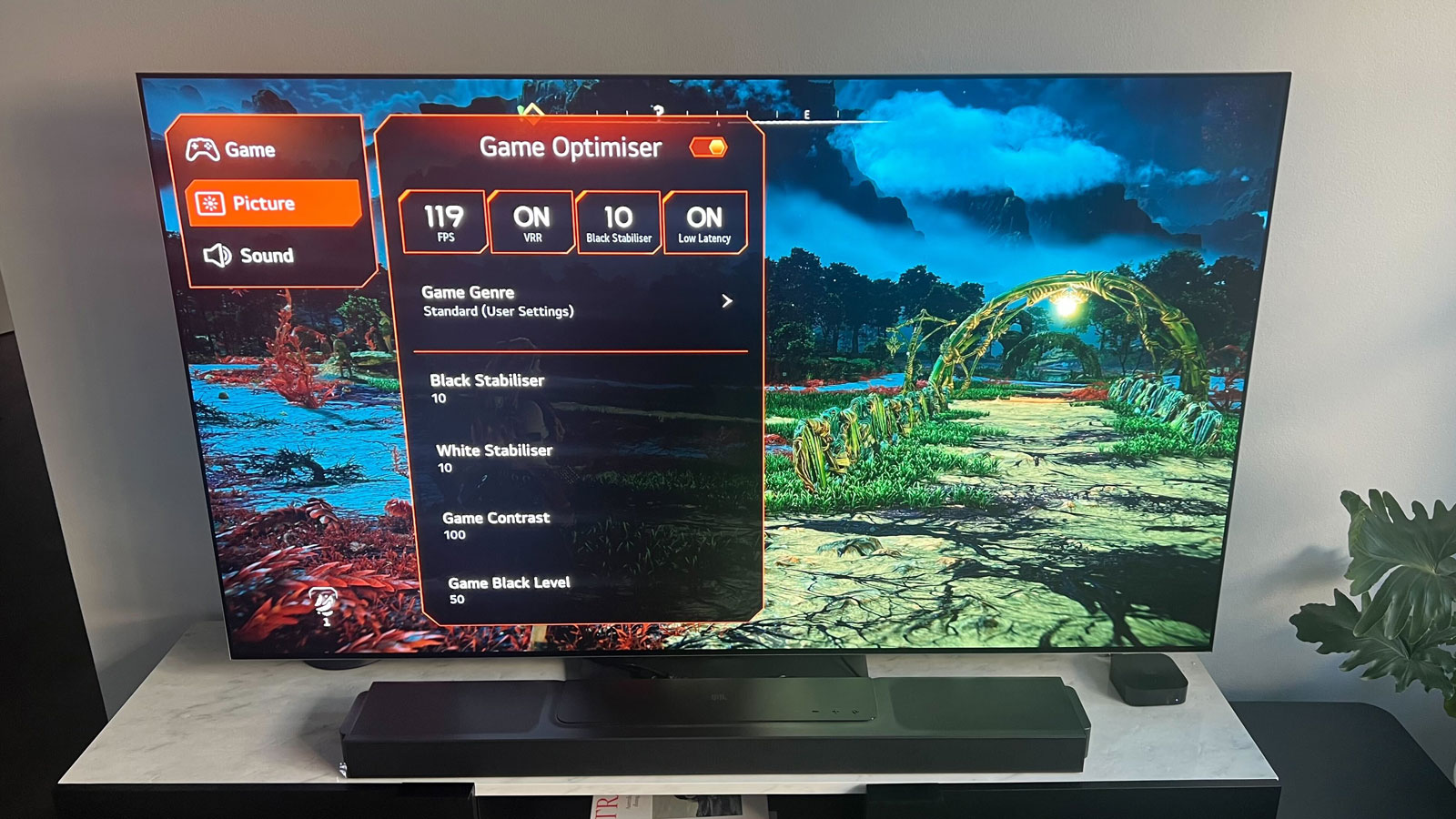
You are able to tweak these settings to your own liking, and easily too. While gaming, you just need to press the settings button on the remote and you’re presented with an on-screen hub showing the current frame rate and latency. From here you can dive deeper into the settings and adjust them in real time, while still being able to see whatever you’re playing – it's one of the features that means LG TVs rank so highly among our list of the best gaming TVs.
You’re able to adjust black and white levels individually for example. This could help in certain situations such as in first person shooters. If you want to make sure you’re able to see any enemies hiding in the shadows, you can drop the black levels to bring out details in darker areas.
Our full review of the LG G3 is in the works, but if you want to own what will definitively be one of the best TVs of 2023, then it’s available now.







